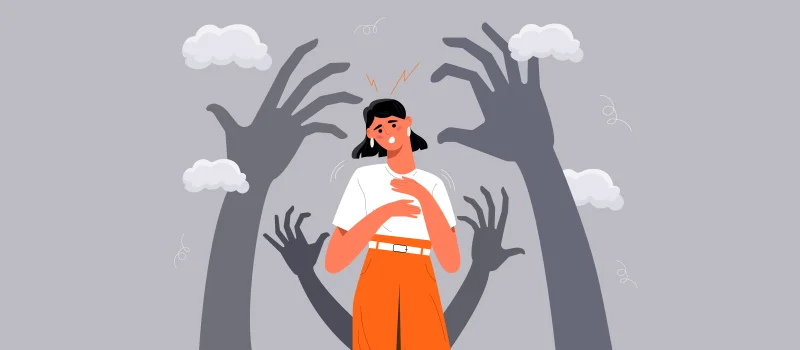Introduction:
Panic disorder treatment is essential for individuals experiencing frequent and unexpected panic attacks. This mental health condition, characterized by intense episodes of anxiety, fear, or discomfort, often includes physical symptoms such as a racing heart, sweating, and shortness of breath. Effective panic disorder treatment methods are available to help individuals manage their symptoms and regain control over their lives. This guide explores five effective treatments that offer relief and support.

What Is Panic Disorder and How Does It Affect Individuals?
Panic disorder can be overwhelming and debilitating. The fear of recurring panic attacks often leads individuals to avoid places or situations associated with previous episodes, impacting their daily lives, work, and social interactions. However, with appropriate panic disorder treatment, individuals can learn to manage their symptoms and live more fulfilling lives.
For those seeking the best Panic disorder treatment, consider visiting:
1. Cognitive Behavioral Therapy (CBT)
Cognitive Behavioral Therapy (CBT) is one of the most effective forms of panic disorder treatment. This structured, goal-oriented therapy helps individuals identify and alter thought patterns that contribute to panic attacks.
CBT treatment for panic disorder includes:
- Identifying Triggers: Understanding situations or thoughts that may spark panic attacks.
- Developing Coping Mechanisms: Learning strategies to manage panic attacks when they occur.
- Gradual Exposure Therapy: Facing feared situations in a controlled environment to reduce anxiety over time.
Studies show that CBT provides lasting tools for managing panic disorder and significantly reduces symptoms.
2. Mindfulness-Based Stress Reduction (MBSR)
Mindfulness-Based Stress Reduction (MBSR) is another powerful panic disorder treatment. By practicing mindfulness, individuals develop awareness of their thoughts and emotions, reducing the impact of panic attacks.
MBSR for panic disorder treatment is beneficial for:
- Reducing Anxiety: Staying grounded and calm during stressful situations.
- Improving Emotional Regulation: Managing responses to triggering events.
- Enhancing Well-Being: Mindfulness improves overall mental health and resilience.
For more resources on MBSR, visit the National Center for Complementary and Integrative Health for mindfulness guidelines.
3. Exposure Therapy
Exposure therapy is a panic disorder treatment that gradually exposes individuals to situations or activities that cause anxiety, helping them build resilience.
Benefits of exposure therapy for panic disorder treatment include:
- Desensitization to Triggers: Controlled exposure reduces the impact of triggering situations.
- Boosting Confidence: Successfully facing fears can build self-confidence.
- Long-Term Symptom Reduction: Over time, exposure therapy can lead to fewer panic attacks.
For more on exposure therapy, check out resources from the National Institute of Mental Health (NIMH).
4. Lifestyle Changes and Stress Management
Lifestyle adjustments are an essential part of effective panic disorder treatment. By reducing overall stress levels, individuals often experience fewer and less intense panic attacks.
Consider these changes for managing panic disorder:
- Regular Physical Activity: Exercise relieves stress and supports mental well-being.
- Balanced Diet: Proper nutrition boosts energy and stabilizes mood.
- Good Sleep Hygiene: Quality sleep strengthens overall mental resilience.
Simple lifestyle changes can make a significant impact in the treatment of panic disorder.
5. Support Groups and Community Resources
Support groups are a valuable part of panic disorder treatment. Being part of a community of individuals facing similar challenges provides emotional support and reduces feelings of isolation.
Some options include:
- Online Forums and Group Therapy: Many organizations offer online support groups for panic disorder.
- Local Community Groups: Regular meetings provide shared coping strategies.
Visit the Substance Abuse and Mental Health Services Administration (SAMHSA) to find support groups and mental health resources.
Final Thoughts on Panic Disorder Treatment
Effective panic disorder treatment can provide individuals with the tools they need to live more balanced and fulfilling lives. From therapy options like CBT and MBSR to lifestyle changes and support groups, there are numerous ways to take control of panic disorder. Seeking professional help and exploring these five methods can help individuals regain stability and manage their symptoms with confidence.

